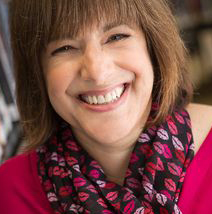Vojin Majstorović is on a mission to broaden the public’s understanding of the Soviet Red Army and its operations during the Second World War. “Up until the fall of the Soviet Union, most of the information we had came from the Germans,” says Majstorović, a U of T doctoral candidate in history. “It gives an incomplete, biased picture.”
Majstorović, who immigrated to Canada from Serbia while in middle school, has been a history buff since childhood. He became fascinated with the Red Army because of its youth. The Soviets had one of the youngest officer corps in the Second World War, largely due to the high casualty rate resulting from the German invasion of the Soviet Union in 1941.
“In the first eight months of the invasion, nearly five million Soviet soldiers were killed or captured, virtually its entire pre-war standing army,” Majstorović says. “The Soviets rebuilt the army with some older, experienced officers, but they also rapidly trained young men who were loyal to the Soviet system to be officers.”
One outcome of Majstorović’s research is the discovery that how a Red Army officer viewed the Holocaust depended on whether he was stationed in a country that was sympathetic to the Soviets, such as Bulgaria, or in a place where the population was hostile to the Red Army, such as Hungary. “In countries that were friendly to the Soviet Union, the Red Army generally ignored the involvement of the local people in the extermination of the Jews,” says Majstorović. “In countries hostile toward the Red Army and where the Soviets committed atrocities of their own, they were much more critical.”
Majstorović recently presented his findings at a conference held at U of T as part of the annual meeting of the International Holocaust Remembrance Alliance.
Recent Posts
People Worry That AI Will Replace Workers. But It Could Make Some More Productive
These scholars say artificial intelligence could help reduce income inequality
A Sentinel for Global Health
AI is promising a better – and faster – way to monitor the world for emerging medical threats
The Age of Deception
AI is generating a disinformation arms race. The window to stop it may be closing





